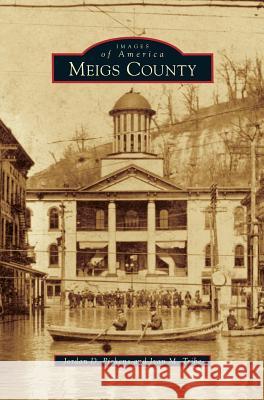Meigs County » książka
Meigs County
ISBN-13: 9781531668990 / Angielski / Twarda / 2014 / 130 str.
For nearly two centuries, Meigs County has occupied the near-center of the Buckeye State's frontage on the beautiful Ohio River. After British and German pioneer farmers initially settled the area, the founding fathers of Meigs County took advantage of river commerce and developed an industrial base by mining for salt and coal, which found markets downstream. In the 1880s, when railroads crossed the county, Hobson Yards and Hobson provided employment for hundreds of "Iron Horse" workers. With the demise of both steam locomotives and the agrarian economy, Meigs languished for a time until a 1970s coal revival ushered in three decades of renewed growth. Through prosperity and hard times, Meigs Countians in river communities and hilly hinterlands have fostered camaraderie by demonstrating pride in their schools, churches, athletic teams, and organizations.
For nearly two centuries, Meigs County has occupied the near-center of the Buckeye States frontage on the beautiful Ohio River. After British and German pioneer farmers initially settled the area, the founding fathers of Meigs County took advantage of river commerce and developed an industrial base by mining for salt and coal, which found markets downstream. In the 1880s, when railroads crossed the county, Hobson Yards and Hobson provided employment for hundreds of "Iron Horse" workers. With the demise of both steam locomotives and the agrarian economy, Meigs languished for a time until a 1970s coal revival ushered in three decades of renewed growth. Through prosperity and hard times, Meigs Countians in river communities and hilly hinterlands have fostered camaraderie by demonstrating pride in their schools, churches, athletic teams, and organizations.











